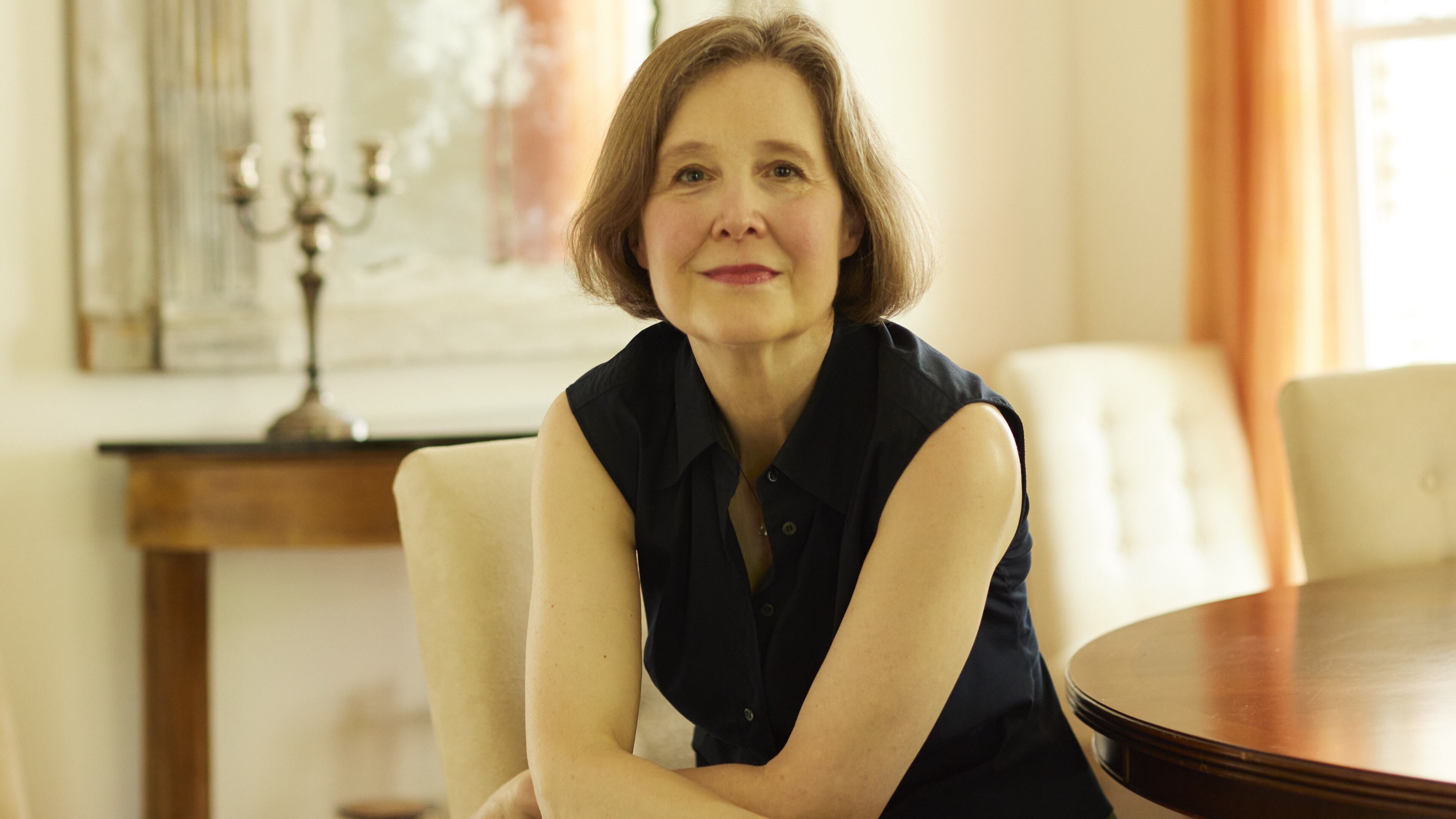Bookshelf: An examined past illuminates the present in Ann Patchett’s ‘Tom Lake’

Ann Patchett is a consummate storyteller whose fluid, naturalistic writing style makes reading her novels an effortless journey as she sweeps you up into her engrossing yarns filled with characters so precisely rendered they seem familiar.
Her new novel, “Tom Lake” (Harper, $30), does not disappoint. A domestic drama about love in all its many permutations — past, present, romantic, familial — the characters’ lives appear ordinary and unremarkable at first glance. But as Patchett slowly tightens the screws, cracks begin to show, revealing complex interior lives filled with heartbreak, humility and grace.
Set during the pandemic on a fruit farm in northern Michigan, it opens on three young adult sisters who have returned home to quarantine with their parents and help them harvest sweet cherries over the summer. Bored by the tedium of their task, they beg their mother, Lara, to tell them about the summer in 1998 when she was in her early 20s and dated a movie star before he became famous. They know the basic facts, which they have embellished and mythologized in their minds over the years, but now that long days of working side-by-side stretch before them, they want all the details.
Lara’s recollection spans the length of the novel and weaves in and out of the family’s present-day life. It mostly takes place at a summer stock theater on the titular Tom Lake where the aspiring actress is cast in the role of Emily in “Our Town.” Immediately upon her arrival, she’s swept off her feet by Duke, the charismatic actor with star power.
“Our Town” figures prominently in “Tom Lake.” It is Lara’s entrée into acting when the teenager first plays the role of Emily in a community theater production. After college, she nails an audition for a Broadway production but is passed over for a more recognizable name. In consolation, she’s offered the role in the production at Tom Lake, where she’s a huge hit.
But when she is also thrust into the role of Mae in Sam Shepard’s gritty drama “Fool for Love” — a play that triggers Lara’s undoing on multiple levels — she begins to wonder: Is she really a good actress or just a good Emily?
As the book’s premise suggests, two other plays figure in “Tom Lake,” thematically speaking. Patchett cleverly draws a line between Anton Chekhov’s “Three Sisters,” who bemoan their provincial lives and long for the excitement of Moscow, and Lara’s daughters, who obsess over the dashing Duke to distract them from the boredom of life on the farm.

And despite the farm’s remote, idyllic setting, it is not immune to cultural forces and social change, much like Chekhov’s “The Cherry Orchard,” where the end of serfdom and the rise of the middle class threaten the orchard’s future. In Lara’s world, the future of the orchard — which has been in her husband’s family for six generations — is threatened by climate change and progeny who don’t plan to procreate.
But at the heart of “Tom Lake” is the recognition that no matter how hard they might try, children can never truly perceive their parents as fully formed human beings. The flip side of that is, parents can never reveal everything about their true selves to their children. And vice versa.
As much as Lara tells her daughters about what happened at Tom Lake, there are things she withholds. Some of it is related to sexual intimacy, but some of it is so wrapped up in shame and heartache, it’s too damaging and too revealing to share.
If the sign of intelligence is, according to F. Scott Fitzgerald, “the ability to hold two opposing ideas in mind at the same time and still retain the ability to function,” it’s also Lara’s formula for living a happy life.
Despite being in the throes of the pandemic, she considers these days with her family quarantined at home together working on her beloved farm as the happiest time of her life.
“It’s not that I’m unaware of the suffering and the soon-to-be-more suffering in the world, it’s that I know the suffering exists beside wet grass and a bright blue sky recently scrubbed by rain. The beauty and the suffering are equally true.”
A Cappella Books and the Jimmy Carter Presidential Library present Ann Patchett in conversation with author Lindsay Lynch at 7 p.m. Aug. 17 at The Carter Center. For details go to acappellabooks.com.
Suzanne Van Atten is a book critic and contributing editor to The Atlanta Journal-Constitution. You can contact her at svanatten@ajc.com.

